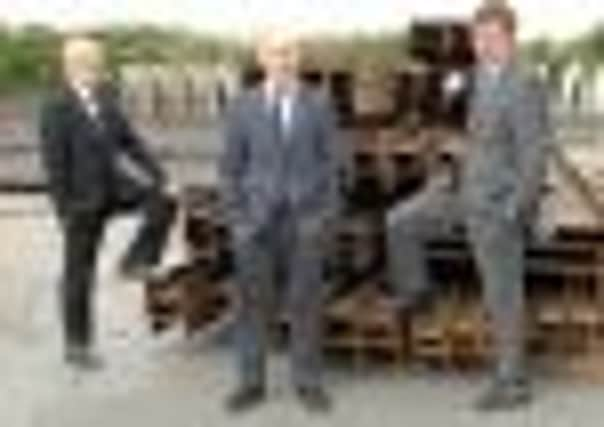The men of steel investing to take on big rivals


The firm set up Stemcor Sections on a five-acre site at Flixborough, near Scunthorpe, in North Lincolnshire, to import steel from around the world and deliver it to its 12 stock-holding depots across the UK as well as direct to customers.
The centre has the capacity to store up to 5,000 tonnes of steel, which managing director Nick Watson said will allow the company – which traditionally sells in small quantities – to serve larger customers.
Advertisement
Hide AdAdvertisement
Hide Ad“It allows us to buy better because we will buy in bigger bulk...and sell better because we are getting a better cost price,” he said.
“It will allow us to start to service larger customers because we can sell larger quantities of steel and deliver it from our central hub direct to the customers without having to go through our individual depots around the country.”
In 2010, the business, which is headquartered in Leeds and also has a distribution depot in Sheffield, saw a 37 per cent rise in turnover, from £35m to £48m. Further growth is predicted for this year, which includes the possibility of opening another depot.
Mr Watson, who is the nephew of well-known steel businessman Ralph Oppenheimer, said: “We’re under pressure to grow our company. Our parent company used to own (larger rival) ASD and we respect our competitors, but at the moment we’re smaller than they are.
Advertisement
Hide AdAdvertisement
Hide Ad“We’ve shown good growth over the last two years and we want to grow our central store quite considerably and also have a lot more depots in other parts of the country.
“It’s difficult to put numbers on it – it depends on the opportunities that come up but I’d like to think that if we see the growth we’ve seen in the last two years, then we’ll be considerably bigger in another few years.”
From one bar of steel to 100 tonnes of steel, the company sells to customers ranging from large fabricators to individual builders.
“Our business has traditionally been a small quantity business and we want to retain and protect that business, which is a good business for us,” said Mr Watson.
Advertisement
Hide AdAdvertisement
Hide Ad“But we now want to improve that side of the business and also grow to become more of a mainstream supplier with the big fabricators and that’s partly where we’ve seen our growth come from.”
He added: “The market is still tough, especially in construction. We haven’t been in the big construction market in the way some of our competitors have been, which has helped us because we haven’t had the losses some of them have had because our order size is quite small.
“We specialise in more retail-type business than wholesale but we are increasingly looking at going into the construction market.
“It’s a good time because we haven’t got any legacy issues, we haven’t got any big stocks that are costing us lots of money.
Advertisement
Hide AdAdvertisement
Hide Ad“Our business has grown substantially in a falling market and I think we can show much further growth as the market picks up, which it is doing.”
B&M was acquired by Stemcor, the world’s largest independent steel trader, in 2008.
At the same time, Mr Watson, a former partner at law firm Hammonds joined the company.
Stemcor is on the acquisition trail and 18 months ago it added a £10m turnover company, Chesterfield Special Steels, now called Stemcor Special Steels, to the group.
Advertisement
Hide AdAdvertisement
Hide AdEarlier this year, Martin Joyce, former chief executive of Leeds-based rival ASD Metal Services, was recruited as a director. He is working closely with Mr Watson in developing and expanding B&M’s nationwide stockholding network.
Mr Watson said: “We are doing quite nicely and we are making steady progress. We are showing strong sales growth and improved profitability.
“I’m pleased with the progress we are making in what has been a tough market.”
He added: “We’ve got lots of new sales people in our business who have done really well for us.”
When it pays to buy at right time
Advertisement
Hide AdAdvertisement
Hide AdSteel prices rose rapidly in the first quarter of 2011, although they are starting to flatten now, which is good news for a stock-holding company that buys at the right time. “If you can judge the market right there’s an opportunity to greatly improve your margins because you’re buying at a certain price,” said Nick Watson. He added: “That has helped us greatly but obviously there may come a time when the price of steel falls and we need to make sure that we don’t suffer the same losses. We are trying to judge our stock levels and think about it as a very important part of our profitability.”